I’ve been spouting off for years about how museums need to change the way they recruit, select and train staff. Why? Because
- Museums say they want a more diverse workforce, but the major pipeline for future professional staff—museum studies and related graduate programs—are overwhelmingly white, female, and from relatively affluent backgrounds.
- The skill sets needed for museum jobs are changing (indeed many of the positions are entirely new) and the people with the requisite skills may not be looking at museums as potential employers—museums have to seek them out.
- The educational landscape is changing. As more people turn to microcredentialing as an accessible, affordable and effective way to build their resumes, employers need to figure out how to validate and assess qualifications documented in non-traditional ways.
Time to practice what I preach.
I have the opportunity to hire someone to backstop my work with CFM—share some of the research and writing, hit the road so we can cover more ground with presentations, and project manage events like the CFM lectures or demos at the annual meeting, convenings and publications. I could simply post an ad on the Alliance’s JobHQ, and probably would be inundated with applications. (When the Alliance recently advertised for a meetings and events position, we got a couple hundred resumes.) But I don’t think this method of hiring would align with principles I outlined above—actively trying to diversify the pool of applicants; seeking out people with diverse skills sets; recognizing and valuing non-traditional training & credentialing.
So I want to run the job search as a game: a game that challenges applicants to demonstrate skills related to the work; values creativity, collaboration and initiative and (in so far as possible) masks their identities for as long as possible.
Bear with me here—I am still working out the details, and one of the reasons I am sharing my formative thoughts in this post is that I value your input. Here are some of my jottings as I work this out:
Where could I look for qualified candidates who might broaden the applicant pool beyond the usual suspects? E.g., groups such as military veterans and people with disabilities who seem to be routinely disadvantaged in hiring, despite legal protections. What other professions or training tracks foster the skills I am looking for?
What challenges in the game could enable any applicant to demonstrate the requisite abilities, rather than relying on traditional signifiers of those skills? E.g., why does a job require a graduate degree? Aside from subject expertise (which is arguably moot in this case—am I really going to find a trained museum futurist?) a degree presumably signals that the degree holder has some facility with critical thinking, writing ability, and self-discipline. But a graduate degree doesn’t guarantee any of those qualifications, and someone without a graduate degree might possess all three. How can I give the applicants the chance to show, rather than just tell?
Could the game generate value for applicants whether or not they are offered the position? For example, could they earn a credential, such as a digital badge, for successfully completing all the challenges, much the same way a student may be designated a Merit Scholar Finalist without being offered a scholarship?
By masking the demographic and personal characteristics of applicants until the final stages, can the game help me avoid the unconscious bias that research has demonstrated influences hiring in fields from science to business?
Here are some of the steps I am taking to bring this idea to fruition:
- Recruiting people with expertise in games design to offer advice and support. (Fortunately, I’ve met a number of interesting folk in the games design world, as I’ve kept an eye on what games design can teach museums ever since Jane McGonigal’s inaugural lecture for CFM.)
- Looking for examples of how games have already been used in hiring. Marriott has a social media game—My Marriott Hotel™—that uses a virtual restaurant/kitchen to attract applicants. L’Oreal India has created a game called Reveal that simulates their work environment, presenting players with challenges in finance, sales, marketing, operations and research and innovation. Domino’s Pizza Hero game for the iPad includes a training & hiring component. The US Army has long used video games as recruitment tools. Of course, all these guys can sink major amounts of money into developing enduring platforms, I will be designing this game for one-time use, and trying to make as much use as I can of free online tools, such as social media, much the way that MMARGs (Massive MultiPlayer Alternate Reality Games) do.
- Researching other fields of endeavor, looking for professions that require an equivalent or significantly overlapping skill set. As I’ve pointed out, many outstanding people in the museum field came from alt backgrounds—engineering, music, journalism—how can I tap into those labor pools to find folks who might like the idea of becoming a museum futurist?
- Identifying how I can provide on the job training via web resources (such as CFM’s own digital badging program) or intensive face-to-face training (like the certificate course in futures studies I took from the University of Houston) to supplement the knowledge the successful applicant brings to the job.
Does this sound just a little crazy? I hope so—because part of my job is exploring trends that are just beginning to touch our lives. This may not work, and that’s fine—failure is a necessary part of risk-taking and innovation. Hopefully whether this “games for hiring” experiment succeeds or not, what I learn from the process will help the Alliance, and museums, explore the workforce of the future.
Keep your eye on this blog for periodic updates on my adventures in the hiring game. Ditto if you are interested in the position yourself—please do not send resumes or letters of interest…yet!


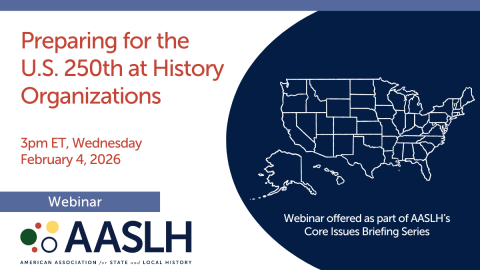
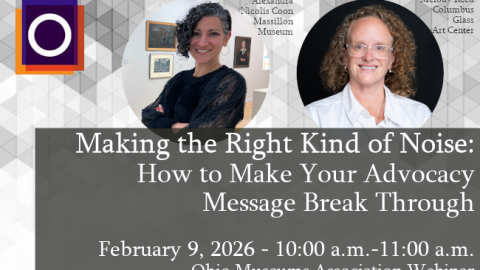

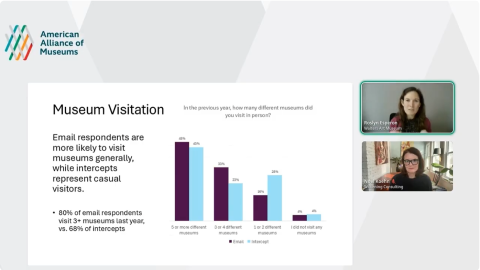
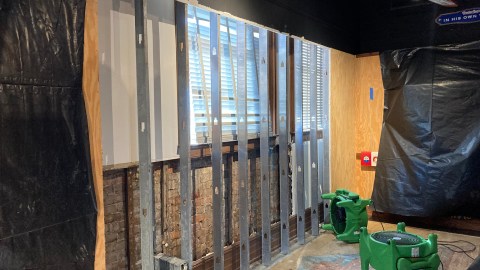
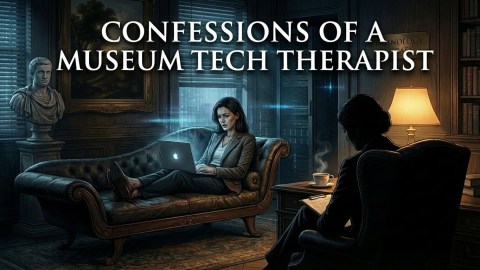

I'm really intrigued by this idea, especially as I finalize yet another blog post about the lack of diversity in museum staffing. It definitely feels like you're onto something with this approach.
I've had the pleasure of working with some great instructional game designers at Kansas State University. They just wrapped up an amazing campus-wide quest game in conjunction with the Common Book program (one book is selected each year for the entire University & surrounding community to read). I'm not sure what their schedules are like, but I'm happy to forward their contact info if needed.
And I will DEFINITELY keep watching this space for more info…
"Aside from subject expertise (which is arguably moot in this case—am I really going to find a trained museum futurist?) a degree presumably signals that the degree holder has some facility with critical thinking, writing ability, and self-discipline."
[I am, arguably, a trained museum futurist…just sayin', they do exist!]
Yes! Yes! Yes! For every reason you listed. But also, because I am so tired of filling out job applications on websites that try to fit my life, education, creativity and passion into tiny character-limited boxes.
I am two steps away from using my keen skill set to apply for grants that would fund me to film a documentary about trials and tribulations of looking for a job in the non-for-profit museum world.
Been thinking about this post for a couple of days, Elizabeth. It's an intriguing method of finding an employee and I wish more employers would come up with creative ways to vet potential employees such that their skills are viewed in a practical light, rather than through a well-polished resume. (Those who don't like to boast of their skills and accomplishments are likely to have underwhelming resumes.)
In trying to find candidates "beyond the usual suspects," I'd try to get this game/badging application directly into those communities. This means thinking beyond traditional job posting sites online or in the physical world. I'll give you a concrete example. My husband used to work as a housing case manager. He had to try to figure out how to reach homeless people in order to offer them services. A lot of his clients frequented tattoo parlors and bars, so he made sure to drop off his business cards and literature at tattoo parlors and bars in his area. Others in the social service sector thought he was nuts, but he was very good at finding clients because of this sociological observation. (He knew his clients hung out in tattoo parlors because many of them had ink.)
If I were trying to capture the history of minority populations in our area, I'd visit the local restaurants owned by people from these groups. As business owners, they're very visible and will likely be especially tied in to others in their own communities that aren't so visible. (If I ever get time from my billion other tasks, I'm going to do exactly this.)
In capturing a small amount of transgender history, I personally asked one of my son's friends to contribute an essay to our historical society. In looking for Jewish history, I put a call out in our newsletter and one of our members put me in touch with a Jewish family that used to live in the community. Obviously, the personal ask is important when trying to get candidates from underrepresented groups.
As for a potential game challenge in this application process, I'd like to suggest asking candidates to design a project in writing, with a clearly stated goal and steps that others can follow to help an organization accomplish that goal. I am amazed at how few people in leadership positions are able to articulate in writing how they intend to achieve something, particularly in light of the fact that so many funders want to see applications written in project form.
Love the ideas of keeping candidates anonymous for as long as possible and the potential for earning a credential through applying. The latter is a win for the candidate, instead of feeling that applying is a waste of time if not selected.
Well, sheesh. Google didn't post my entire name with my comment. I'm one of CFM's test pilots … Mary Warner.
This might seem a bit tangential but I've just finished reading a fiction book called 'This is not a game' by Walter Jon Williams where the game designers integrate real-world problems into games. I wondered whether you had thought about integrating your job-search into games that are already being played, rather than designing a new game. It may identify those with more 'futurist' tendencies.
Interesting idea, Sally. I will check out the book & think about your suggestion.
This might relate to your search, it's a company that is based in Canada but also up and running in SF, that looks to gamify work to increase productivity and incentive and had amazing success. I talked to a few people at the company and recommended them to my last company – Achievers (used to be I Love Rewards) http://www.achievers.com/ and here is a profile of the company on tech crunch – http://www.crunchbase.com/company/achievers
Center for the future of museums is an nice article.It have some stuff informations.nwe hire staffing
Employers should really look deeper in hiring. A resume should not be everything because most of what's written in there are only the positive traits of the applicant anyway. Skill is more important. http://www.21stcenturynews.com.au/high-paid-jobs-dont-require-degree/
Dear Elizabeth,
I'm intrigued with the concept, with your call for input at this formative stage, and with your acknowledgment that innovation requires risk. A few comments:
1) I think you'll attract highly motivated people who do not shy away from competition, and enjoy new challenges. You'll also screen out those who are spraying generic resumes in all directions.
2) I remind you of the KISS principle; you seem to have many –perhaps too many — goals. For instance, trying to offer applicants something besides an interesting application process (digital badging or other credit for applying) could backfire by attracting applicants who are MORE interested in getting credit than getting your job. Also, the game itself should (IMHO) be simple, clearly focused on demonstrating the skills you're looking for.
3) Perhaps you could use this again in the future, for other openings for which you're seeking creative, playful people. In that case, you might want to include your HR team to see this through their lens.
Good luck – and congrats on your own creativity!
-Mariah Burton Nelson, VP for Innovation and New Product Development, ASAE